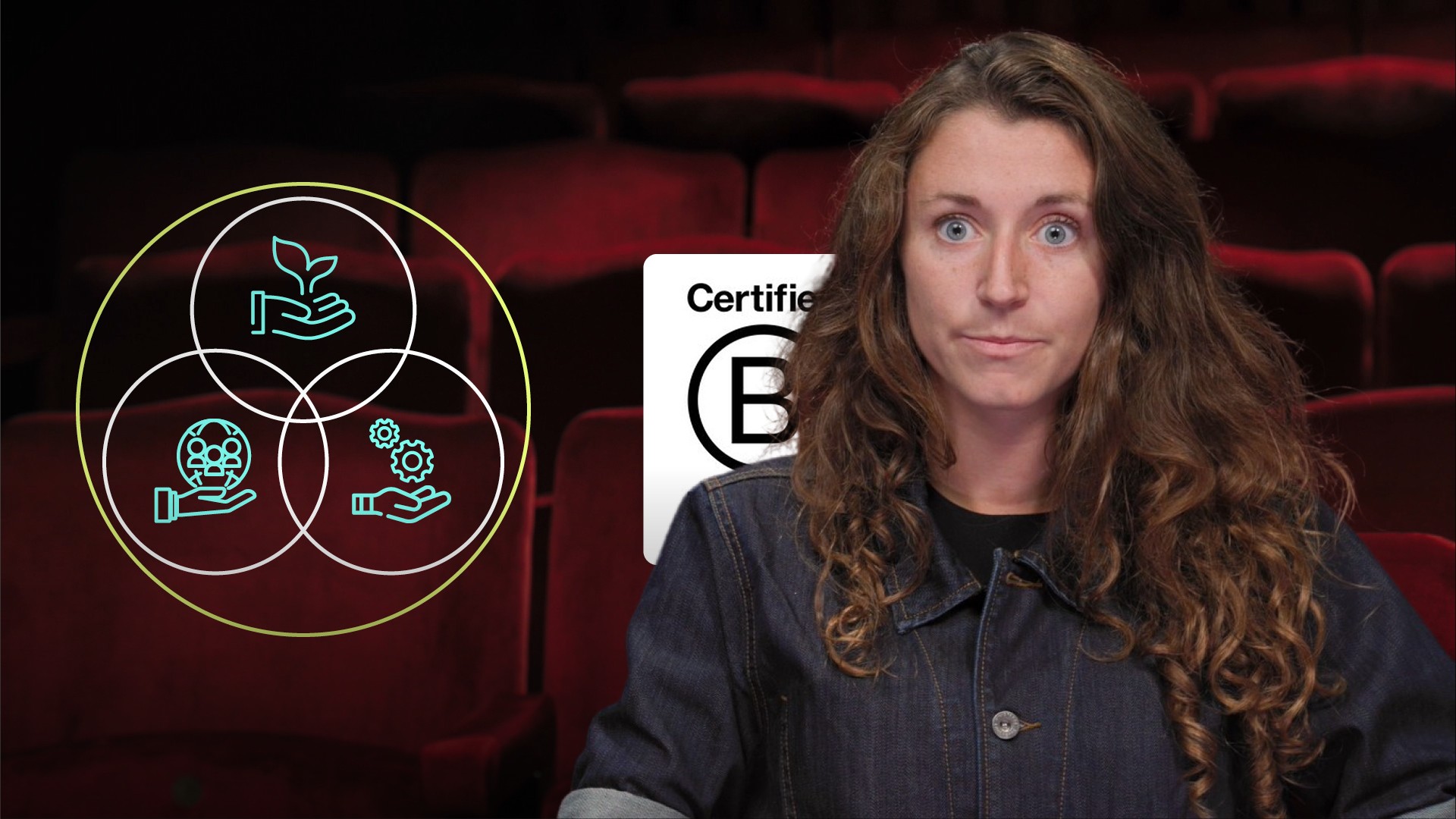
Being a B Corp

Rebecca Wetten
B-Corps and sustainability specialist
In this video, Rebecca provides an overview of what happens once a company has achieved B Corp status, which companies are in the B Corp community and how the B Corp certification stacks up to governmental and legal frameworks.
In this video, Rebecca provides an overview of what happens once a company has achieved B Corp status, which companies are in the B Corp community and how the B Corp certification stacks up to governmental and legal frameworks.

Being a B Corp
10 mins 48 secs
Key learning objectives:
Provide an overview of what happens once you’ve achieved B Corp status
Identify companies are in the B Corp community
Explain how the B Corp certification stacks up to governmental and legal frameworks
Overview:
In the third video, Rebecca outlines the obligations that come with becoming a B Corp. This includes: the ongoing costs i.e. the annual certification fee; the legal requirements i.e. providing legal protection to directors. Also explained are the benefits that the B Corp community provides. For example forming partnerships with other sustainable goal-orientated companies.
What happens immediately after attaining B-Corp status?
When a company is certified, they will be a B Corp for three years, after which they’ll need to re-apply. A year is given to embed the B Corp principles into a company’s legal framework. Access to the B Hive network is granted, where you can connect with other members of the B Corp community online or meet in person at events, building client and seller relationships with organisations you can trust.
What does being in a B Corp involve?
Firstly, there is an ongoing cost to being a B Corp. You’ll be required to pay your annual certification fee, which will depend on your annual sales figures. For example, if your annual sales are up to £149,000, you’ll pay a fee of £500.
The second key aspect is the legal requirements. Certified B Corps are legally required to consider the impact of their decisions on all their stakeholders. B Corps make this legal change by updating their Articles of Association, reincorporating as benefit companies and benefit corporations, or making other structural changes.
What are some other legal requirements?
- Giving legal protection to directors and officers to consider the interests of all stakeholders, not just shareholders, when making decisions
- Creating additional rights for shareholders to hold directors and officers accountable to consider these interests
- Limiting expanded rights to shareholders exclusively. In other words, the B corp legal framework empowers directors and officers to make decisions to protect the company’s mission; under this legal framework, their responsibility is no longer solely about maximising shareholder profits
- For companies with less than 50 employees, the legal requirement must be met prior to achieving certification, and the review process is different compared with larger companies. Extra time is given to companies with 50 or more employees to complete their legal requirement.
Why is the B Corp legal framework important?
The B Corp legal framework helps companies protect missions through capital raises and leadership changes. It also gives entrepreneurs and directors more flexibility when evaluating potential sale and liquidity options. They do not have to make decisions that primarily maximise shareholder profits. The B corp legal framework allows companies to be released from the fear of being sued by shareholders for failing to maximise their profits.
What does the B Corp community look like?
The B Corp community is populated by over 3,700 companies. B Corps span 150 industries and 74 countries with a combined revenue of $80bn. B Corp companies include:
- Retailers - Ocado, Waitrose & Boots
- Fast Moving Consumer Goods (FMCG) - Ben and Jerry’s, Innocent & The Body Shop.
- Multinationals - Unilever and Danone;
- Bancolombia, the third largest bank in Latin America is also a B-Corp.
- The Guardian were the first major international news organisation to become a B Corp
- Bates Wells were the UK’s first B Corp law firm
Are B Corp partnerships common?
Yes. Brewdog teamed up with Tony’s Chocolonely to bring the chocolatiers bars to life in the form of a white chocolate and raspberry IPA. Both Waitrose and Ocado have a dedicated “aisle” where they promote B Corp brands and products. Three B Corps based in New England - Pete and Gerry’s Organic Eggs, Cabot Creamery, and Stonyfield Organic - teamed up for an in-store marketing campaign that encouraged customers to consider the power of their everyday purchases, using the phrase ‘It’s not a dollar. It’s a ballot. Vote everyday for your values’.
What is The Sustainable Apparel Coalition (SAC)?
The SAC put standardised sustainability measurements in the hands of key decision makers in the apparel and footwear value chain, incentivising them to make decisions that reduce environmental impact and increase social justice across the entire industry. SAC’s members are B Corps including Patagonia, Eileen Fisher and Allbirds, along with non-B Corps such as Nike, ASOS and H&M Group.

Rebecca Wetten
There are no available Videos from "Rebecca Wetten"

